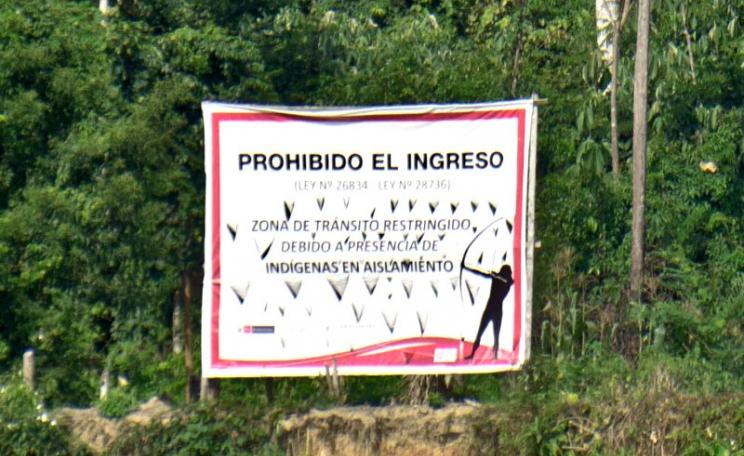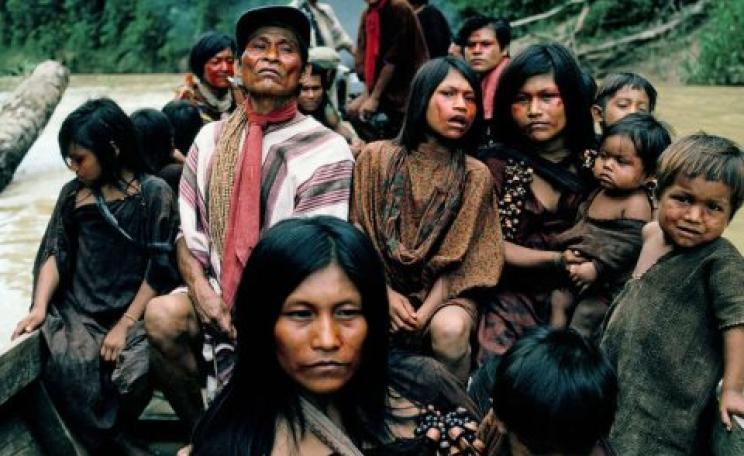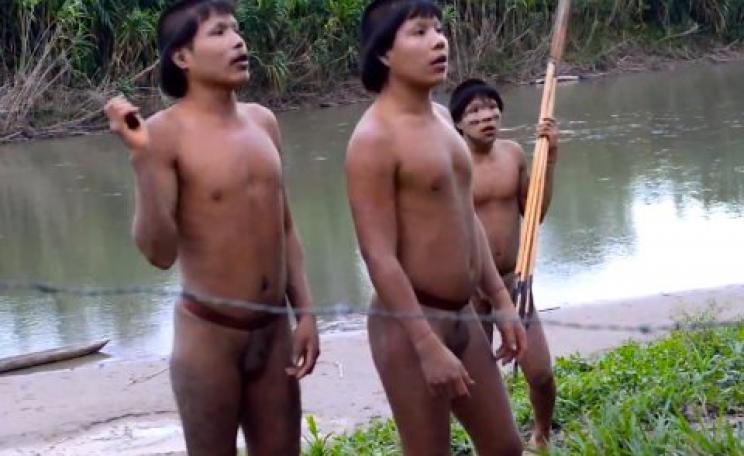This railway is evil and it threatens our people. For us Indians and our uncontacted relatives this project represents a deadly danger which would put an end to our forest and our lives!
A controversial $30 billion mega-project to build a transcontinental railway from the Atlantic to the Pacific has caused fear and outrage among the indigenous peoples of the Amazon.
The 5,300 km railway, which was unveiled last month by Chinese Premier Li Keqiang on an official visit to Brasilia, would link Brazil's Atlantic coast with a Pacific port in Peru, enabling the bulk export of agricultural commodities like soy, corn and beef, from Brazil, along with iron ore, other minerals, logs and sawn timber.
Operating in the reverse direction, it would provide a rapid conduit for Chinese exports of manufactured goods into lucrative Brazilian, Paraguayan, Uruguayan and Argentinan markets.
But the economic gains would come at a massive human and environmental cost: the line would cross through many indigenous territories and areas of high biodiversity across the Amazon rainforest in southern Peru and Brazil, Brazil's Mato Grosso region, and Peruvian cloud forests and other sensitive Andean habitats.
Ninawá Kaxinawá, an indigenous leader whose community lives near the proposed railway line, told Survival International:
"This railway is evil and it threatens our people. For us Indians and our uncontacted relatives this project represents a deadly danger which would put an end to our forest and our lives!"
A new swathe of destruction across the Amazon
If realized, the railway line would wreak havoc on indigenous peoples' lands and lives by opening up their areas to industrial exploitation, illegal mining and logging, and encourage colonization.
It would also fuel a new drive to clear natural areas - forests, woodlands and savannahs - in Brazil and beyond, to agricultural use to supply China's growing demand for food and animal feeds. And it would increase demand for minerals and timber, adding to the pressure to log and industrialise forests
Uncontacted tribes, the most vulnerable societies on the planet, would face devastation from invasions into their lands. Whole populations could be wiped out by violence from outsiders and by diseases like flu and measles to which they have no resistance.
According to Survival's director, Stephen Corry, the railway "is likely to cause even more devastation of the Amazon rainforest and its peoples. While studies show that tribal peoples are the best conservationists, their lands are facing an onslaught of development projects.
"Projects like this amount to nothing more than the theft of tribal lands and - as always - they're carried out in the name of 'progress' and 'development.'
The lessons of the 900 km Carajas railway
Similar projects set a chilling precedent. In the 1980s, the 900 km Carajás railway line in Brazil's north-eastern Amazon opened up the land of many tribes such as the isolated Awá, Earth's most threatened tribe, to illegal loggers, cattle ranchers and settlers.
This railway is evil and it threatens our people. For us Indians and our uncontacted relatives this project represents a deadly danger which would put an end to our forest and our lives!
Countless families were massacred and others succumbed to diseases brought in by outsiders, and rampant logging resulted in over 30% deforestation in the Awá's central territory.
Decades later, illegal loggers still threaten the lives of uncontacted Awá. In December 2014, a group of three Awá were forced out of their forest home by loggers. Two of them are now critically ill.
Survival is calling on the Brazilian and Peruvian governments to uphold national and international laws, which require that indigenous peoples must be properly consulted and give their consent before projects that will affect them can go ahead.
Under Brazil's Ordinance 3013, passed in 2012, this may not be necessary, however, as the controversial law - which sparked massive protests across Brazil (see photo) abolished the need for indigenous consultation for major infrastructure projects deemed integral to national security.
Because consultation with uncontacted tribes is impossible without disrupting their societies and exposing them to life-threatening disease, adds Corry, their land must be protected to avoid catastrophe.
"For centuries, the Indians of the Americas have been sacrificed at the altar of profit. Many don't survive the onslaught against their lives and lands. Make no mistake - for uncontacted tribes this railroad is genocidal."
Principal source: Survival International







